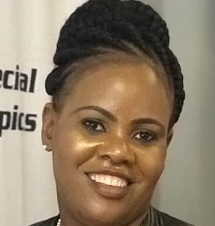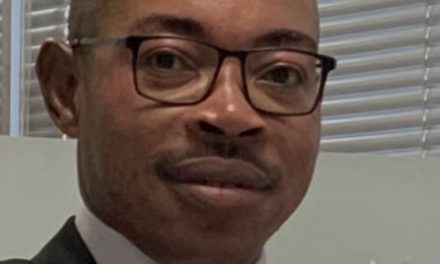
The Olympic achievements of our star athletes have made us all feel special

By Emilia Nzuzi
National Executive Director
Special Olympics Namibia.
Where were you when our girls walked out onto the track in Tokyo for the 200 metres final? Glued to your radio, laptop, TV or smart device to catch a glimpse of history about to be made by our Beatrice and Christine. And boy, we were not disappointed. Henk’s brilliant athletes won us silver and two ‘Personal Bests’ from our sensationally swift superstars. The athletes Christine Mboma and Beatrice Masilingi, carried the hope of a nation and rewarded us a 100-fold with their achievement. The true epitome of the Olympic dream. Just as Johanna Benson and Frankie Fredericks had done before them.
The Olympics are about competing, getting the best out of yourself and rising to the occasion. Surrounded by athletes and sports people dedicated to their specific discipline and with a battery of coaches, dieticians and other support staff, the sky is the limit for the best athletes. However, Namibia’s achievements should be seen as even more impressive as the levels of funding are nowhere near what other countries spend on sports development. There are no full-time athletics scholarships, major shoe-endorsements to take away money stress. Not long ago a N$ 10,000 – sponsorship for two of the fastest athletes in the world was major frontpage news. This is where we need to rethink our attitude.
The Olympic movement is about sports and taking part, Namibia has shown its mettle in the Olympic Games as well as the Paralympics games, another part of the Olympic movement is the Special Olympics. One that is usually not thought about sadly. The Special Olympics is the world’s largest sports organization for children and adults with intellectual disabilities, providing year-round training and activities to 5 million participants. Together with its Unified Sports partners it spans 172 countries including Namibia. Sport truly is a great unifier and the athletes that partake in the Special Olympics achieve greatness through their dedication, determination and unstoppable attitude.
There seems to be a pecking order for funding, with funding going to the Olympic Team, and some being given to the Paralympics Team for the athletes and training facilities. However, the Special Olympics, whose athletes truly go above and beyond are left fending for resource scraps, if any funding at all for that matter. Their training facilities in Windhoek clearly reflect this lack of funding. Making the Olympic dream become a reality for these athletes with intellectual disabilities is perhaps a greater joy to see than anything else in life.
Athletics and sports will enjoy an upsurge in popularity which is great for the nation as it will mean that kids and young people will exercise, it may even galvanise the most ardent couch potato into action. The Ministry of Education, Arts and Culture together with the Ministry of Sports Youth and National Service are working together with GIZ to promote physical education and sports through their Integrated Physical Education and School Sports (IPESS) project. This project has been created because children participate in sports or activities it helps to guide and nurture children. It is the only way to create champions for our nation. Not just sporting champions, but children who understand the need for teamwork. Getting them to participate in activities and keeping them away from bad influences by giving them the chance to engage in sports and play.
We will continue to focus and cheer on Christine Mboma and Beatrice Masilingi, but the other excellent athletes competing in Tokyo including our Paralympics and certainly or Special Olympics participants deserve our (financial) support as well.











































